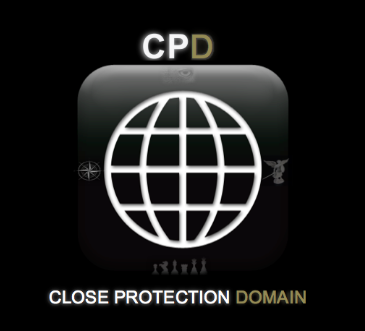Arrest shows Europe's challenge to track jihadi
Page 1 of 1
 Arrest shows Europe's challenge to track jihadi
Arrest shows Europe's challenge to track jihadi
PARIS (AP) — The suspect in the recent killings at the Jewish Museum in Brussels provides a textbook example of a longstanding fear in the West — the threat posed by radicalized citizens returning from the battlefields of Syria.
Since Syria became a magnet for Westerners, European nations have been slowly fortifying themselves with measures to detect potential jihadi fighters and counter any plots. But French-born Mehdi Nemmouche — the first Western citizen returning from Syria to be implicated in a major attack — was caught by chance, in a spot check for drugs by a customs official, making a mockery of efforts to counter the threat.
The suspect had slipped through a handful of countries from Asia to Europe in the three months after leaving Syria, a French prosecutor said, a clear sign of the difficulties of tracking returnees.
Whether or not he was the Brussels shooter, the portrait provided by authorities of Nemmouche, 29, is of a dangerous man. They say when he was arrested Friday at the Marseille bus station he was heavily armed, carrying a large supply of ammunition and a banner of Syria's most notorious fighting group, the Islamic State of Iraq and the Levant.
They added that his camera contained a video showing weapons and clothes appearing to match those of the killer in the furious minute-long May 24 museum attack, which left three people dead and one seriously injured. A voice said the video was made because a camera to broadcast the killings live failed to function.
Nemmouche, who has spent seven years behind bars, had been radicalized in prison, Paris Prosecutor Francois Molins said in announcing the arrest.
Between 1,000 and 1,500 Europeans may currently be fighting in Syria against President Bashar Assad, according to Charles Lister, an analyst with Brookings Doha Center, who drew the estimate from governments and other sources. Each one who returns represents a potential threat, according to official European thinking, and the challenge to track them all is huge. The arrest of the French suspect in the Belgian attack also opens the possibility that a returnee could choose to attack a country other than his homeland.
Thomas Hegghammer, an expert on foreign fighters at the Norwegian Defense Research Establishment, says that attacks by one person are far harder to thwart than large-scale operations.
European governments "are quite well positioned to thwart larger plots involving several people," Hegghammer said. "They're not able to stop all the smaller, simpler attacks like the one in Brussels, with one person and a gun."
In its annual report issued last month, The EU's police organization Europol said radicals who travel to fight alongside militants in conflicts like the Syrian civil war are "posing an increased threat to all EU member states on their return."
A leading French criminologist who advised former President Nicolas Sarkozy said that a lack of coordination and data-sharing among nations — even within the EU — stunts measures to counter the threat.
"The task is not impossible," said Alain Bauer. "You need greater and better coordination."
A major issue, he said, is that nations are concerned that sharing information will endanger sources.
Bauer underscored the importance of catching the traveler before he embarks. And this means "early intelligence, early warning, early detection. That is something we don't do," he said.
France feels particularly vulnerable because it has the highest estimated number of youths heading to Syria or fighting there — about 700. It rolled out new measures in April to prevent its citizens and legal residents from joining the jihad and protect against potential threats posed by returnees, including canceling French passports and deporting foreign residents.
The Dutch government has already canceled the passports of 11 people where authorities provided good reason to suspect an individual may harm Dutch national interests while abroad. Britain has also withdrawn passports under a "Royal Prerogative." It doesn't release figures, but according to the Bureau of Investigative Journalism, Home Secretary Theresa May in 2013 removed the citizenship of 20 individuals, including many who were suspected of planning trips to Syria.
However, softer approaches also are on the books in Britain and elsewhere.
EU anti-terror chief expects
"more small-scale attacks"
Europe can expect further "small-scale attacks" like the fatal shooting at the Jewish Museum in Brussels, the EU's anti-terror chief Gilles de Kerchove said Monday.
"I don't expect another 9/11," he said in a video statement. "I don't expect a major sophisticated attack."
"I expect more small-scale attacks like the one in Brussels," he added referring to the May 24 attack that left three dead and a young man fighting for his life.
A 29-year-old Frenchman, Mehdi Nemmouche, who spent more than a year fighting in Syria, is being held in custody on suspicion of the attack after being detained Friday in Marseille.
De Kerchove said more than 2,000 Europeans had left for Syria or were on their way there, where "they will get military training, become much more radicalized, and have a network across Europe."
Though "few will mount an attack", the Brussels incident was "very, very worrying" for Europe's future security, he said.
De Kerchove said that though it remained to be seen whether or not Nemmouche acted on his own inspiration, "I don't think he is a lone wolf."
The attack has caused commentators to call for European Union nations to better coordinate against the threat of jihadist fighters returning home from the Syrian front.
Since Syria became a magnet for Westerners, European nations have been slowly fortifying themselves with measures to detect potential jihadi fighters and counter any plots. But French-born Mehdi Nemmouche — the first Western citizen returning from Syria to be implicated in a major attack — was caught by chance, in a spot check for drugs by a customs official, making a mockery of efforts to counter the threat.
The suspect had slipped through a handful of countries from Asia to Europe in the three months after leaving Syria, a French prosecutor said, a clear sign of the difficulties of tracking returnees.
Whether or not he was the Brussels shooter, the portrait provided by authorities of Nemmouche, 29, is of a dangerous man. They say when he was arrested Friday at the Marseille bus station he was heavily armed, carrying a large supply of ammunition and a banner of Syria's most notorious fighting group, the Islamic State of Iraq and the Levant.
They added that his camera contained a video showing weapons and clothes appearing to match those of the killer in the furious minute-long May 24 museum attack, which left three people dead and one seriously injured. A voice said the video was made because a camera to broadcast the killings live failed to function.
Nemmouche, who has spent seven years behind bars, had been radicalized in prison, Paris Prosecutor Francois Molins said in announcing the arrest.
Between 1,000 and 1,500 Europeans may currently be fighting in Syria against President Bashar Assad, according to Charles Lister, an analyst with Brookings Doha Center, who drew the estimate from governments and other sources. Each one who returns represents a potential threat, according to official European thinking, and the challenge to track them all is huge. The arrest of the French suspect in the Belgian attack also opens the possibility that a returnee could choose to attack a country other than his homeland.
Thomas Hegghammer, an expert on foreign fighters at the Norwegian Defense Research Establishment, says that attacks by one person are far harder to thwart than large-scale operations.
European governments "are quite well positioned to thwart larger plots involving several people," Hegghammer said. "They're not able to stop all the smaller, simpler attacks like the one in Brussels, with one person and a gun."
In its annual report issued last month, The EU's police organization Europol said radicals who travel to fight alongside militants in conflicts like the Syrian civil war are "posing an increased threat to all EU member states on their return."
A leading French criminologist who advised former President Nicolas Sarkozy said that a lack of coordination and data-sharing among nations — even within the EU — stunts measures to counter the threat.
"The task is not impossible," said Alain Bauer. "You need greater and better coordination."
A major issue, he said, is that nations are concerned that sharing information will endanger sources.
Bauer underscored the importance of catching the traveler before he embarks. And this means "early intelligence, early warning, early detection. That is something we don't do," he said.
France feels particularly vulnerable because it has the highest estimated number of youths heading to Syria or fighting there — about 700. It rolled out new measures in April to prevent its citizens and legal residents from joining the jihad and protect against potential threats posed by returnees, including canceling French passports and deporting foreign residents.
The Dutch government has already canceled the passports of 11 people where authorities provided good reason to suspect an individual may harm Dutch national interests while abroad. Britain has also withdrawn passports under a "Royal Prerogative." It doesn't release figures, but according to the Bureau of Investigative Journalism, Home Secretary Theresa May in 2013 removed the citizenship of 20 individuals, including many who were suspected of planning trips to Syria.
However, softer approaches also are on the books in Britain and elsewhere.
EU anti-terror chief expects
"more small-scale attacks"
Europe can expect further "small-scale attacks" like the fatal shooting at the Jewish Museum in Brussels, the EU's anti-terror chief Gilles de Kerchove said Monday.
"I don't expect another 9/11," he said in a video statement. "I don't expect a major sophisticated attack."
"I expect more small-scale attacks like the one in Brussels," he added referring to the May 24 attack that left three dead and a young man fighting for his life.
A 29-year-old Frenchman, Mehdi Nemmouche, who spent more than a year fighting in Syria, is being held in custody on suspicion of the attack after being detained Friday in Marseille.
De Kerchove said more than 2,000 Europeans had left for Syria or were on their way there, where "they will get military training, become much more radicalized, and have a network across Europe."
Though "few will mount an attack", the Brussels incident was "very, very worrying" for Europe's future security, he said.
De Kerchove said that though it remained to be seen whether or not Nemmouche acted on his own inspiration, "I don't think he is a lone wolf."
The attack has caused commentators to call for European Union nations to better coordinate against the threat of jihadist fighters returning home from the Syrian front.
 Similar topics
Similar topics» Anti-Terror Police Arrest Two Men At Dover
» Salafists and Secularists Challenge the Authority of Tunisia's Islamist Rulers
» Video shows Israeli Police killing Crazed Terrorist
» CCTV of Anti terror arrest in London
» West Midlands Police arrest 4 travelling back from Syria
» Salafists and Secularists Challenge the Authority of Tunisia's Islamist Rulers
» Video shows Israeli Police killing Crazed Terrorist
» CCTV of Anti terror arrest in London
» West Midlands Police arrest 4 travelling back from Syria
Page 1 of 1
Permissions in this forum:
You cannot reply to topics in this forum
 Home
Home Register
Register Log in
Log in




» OSINT's books
» Hire Bodyguard in London
» Contact for work
» Updated CV
» Introduction
» Intersec 2017
» HLR/D-HLR Instructor Sweden
» CP SIA, MIRA Quaified